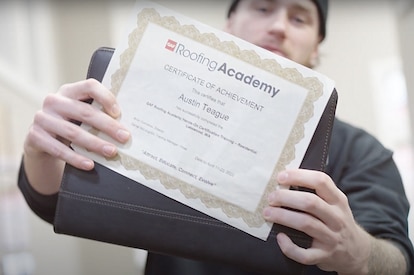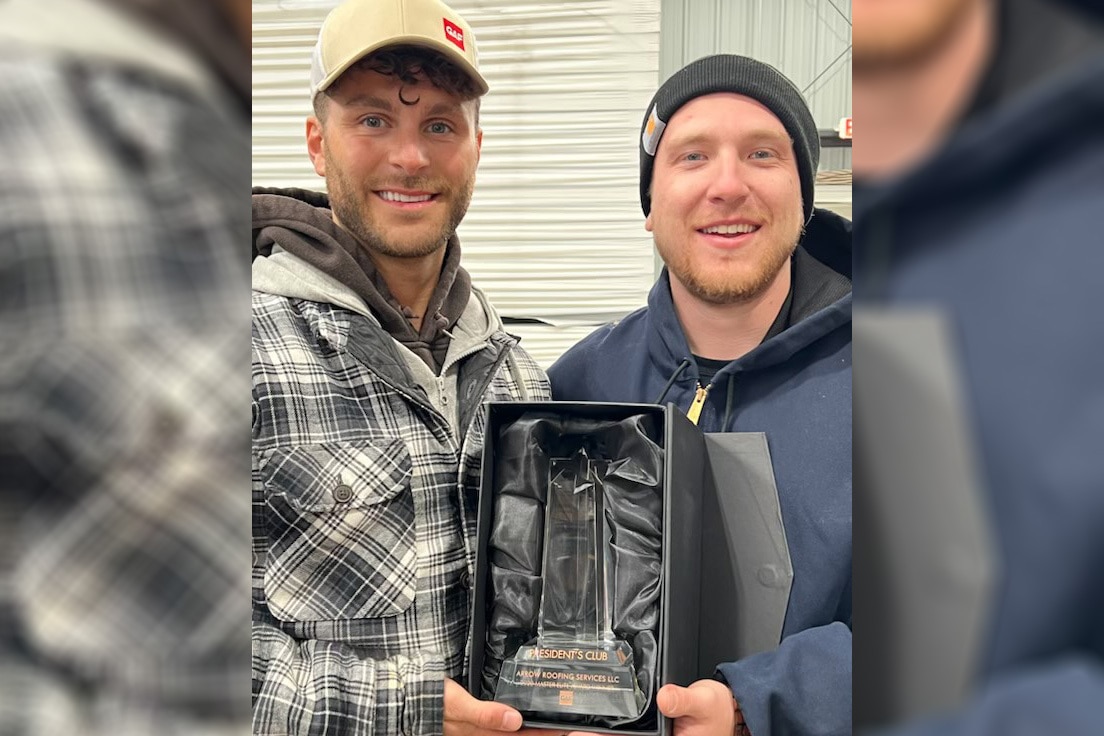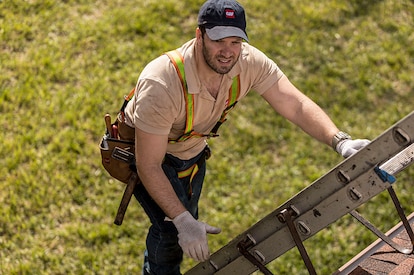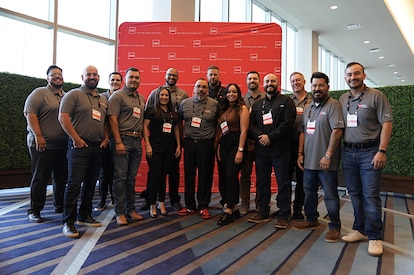
In Your Community
How Attending the GAF Roofing Academy Changed One Graduate's Life
Meet Austin Teague, recent GAF Roofing Academy graduate who shares his transformational journey from ball field to the roof. Prior to the GAF Roofing Academy, he was involved in sports, worked in customer service, but lacked the experience needed to break into the roofing industry. Once he graduated from the GAF Roofing Academy, doors were then opened for him, leading to well-paying jobs as an installer and later as a salesperson, where he is currently on track to meet his financial goals.Attending the two-week program proved to be a life-changing decision for Austin, providing him with the tools and confidence needed to succeed. The course not only equipped him with technical expertise, but also instilled in him the ability to educate customers effectively. Take a listen as Austin shares his story of how he found clarity and direction in his professional life, enabling him to thrive in the industry and build a successful future for himself and his family.Are you interested in a career in the roofing industry? Look for a Roofing Academy course in your area. Video TranscriptMy name is Austin Teague. I'm originally born in Tyler, Texas. Moved to Washington when I was a kid at ten. Well, prior to joining the Roofing Academy and, you know, taking my skills to that test, I was sports, strictly sports. Everything in my life I would, you know, I'd work a customer service job. I was in the, you know, the retail industry. I worked at Walgreens, but my personal life was hectic. It was football practice, baseball practice. It was always something going on.There was always something to do. Everything when it comes to roofing, for me, started after the Roofing Academy. When I tried to get into the roofing industry before going to the Academy, nobody wanted me because I had no experience. They're going to have to train everybody on the job. But because of the roofing academy, because I knew what I was going to do day one, I knew what my job was. I couldn't run into any hiccups because I knew what showing up day one was going to look like.[00:00:56.770]So they gave me a GAF certificate with my name, the location I trained out of, and then when I graduated. And what I did with that is I took it to every single applicant or job interview I had because I wanted them to know that I have this certificate. Not saying I have it, but also bring it, so they can see it.After the academy, I landed a job at 28 an hour as an installer, which is substantial in this living, making life, making payments. And then after that, I got bumped up to 32 an hour when I was working in New Mexico. And now that I'm sales, I'm straight commission. But in this month, I'm on pace to hit 20,000. Our goal at Tristate is to educate the customers firsthand. So being at the Roofing Academy allowed me to know roofing like the back of my hand. As an installer, as a sales, as an owner, you got to see the value in the systems. And it allowed me in my head to build those value, actually explain it to the customers. Where is this number coming from? Well, it's coming from this material because this material is going to cost more, of course, but it's obviously better.[00:01:58.920]I think someone coming to the Roofing Academy right away, no experience, is going to set you up for success. That's what you want. You want to be set up for success. You want to be as many tools as you can in your tool belt to get you to that point you want to be in life. And showing up to the Roofing Academy, it changed my life drastically. I didn't know what I was going to do. I literally didn't know, if roofing wasn't the pathway for me- what was the next plan?I was just grateful. I mean, I was one day on indeed looking for jobs and I saw the Roofing Academy post on indeed looking for academy students, and I thought, why not? What's two weeks out of my life that I get to change it? If I get an opportunity to change it and that two weeks changed my life. There's no time wasted. You're here from nine to three or nine to four at the latest for your classes.You're with guys that you actually enjoy being around. The guys in my class or in the class today, they're fun guys. They all get to make mistakes and learn from each other. And it just makes me grateful that I got that opportunity to make something of myself. I'm not just another guy on the street.[00:03:00.340]I don't know what my life's going to look like in the next six months, but I guarantee it's not going to slow down. I'm going to work harder than ever. I know I got two kids at home. I have something to push me. I would say that all the success started with the Roofing Academy because my life before the Roofing Academy was kind of on a snowball effect. It had started from when I left college and then came home and it kind of just started snowballing. One thing after another was another problem, another problem. Bills at 18, going into debt. You're 18, your life isn't, you're going to ruin your life already. So you got to figure some out. And I figured it out. I got lucky enough that I found GAF and you know they still treat me well to this day. I have my Academy teacher's phone number and I call them up and help him out from time to time, and he helps me out from time to time.We still get along. And it was two weeks of my life that I knew the guy, and he still gives me a call and checks up on me and tries to: How are you doing in roofing? You still in roofing? You still making a name for yourself? You still doing what you said you were going to do? And I am. It's just good to have someone to talk to. Even if you're in this industry for ten years, I guarantee you GAF CARE will probably still give you a call and check on you. That's just what they do.
By Authors GAF Roof Views
April 12, 2024



